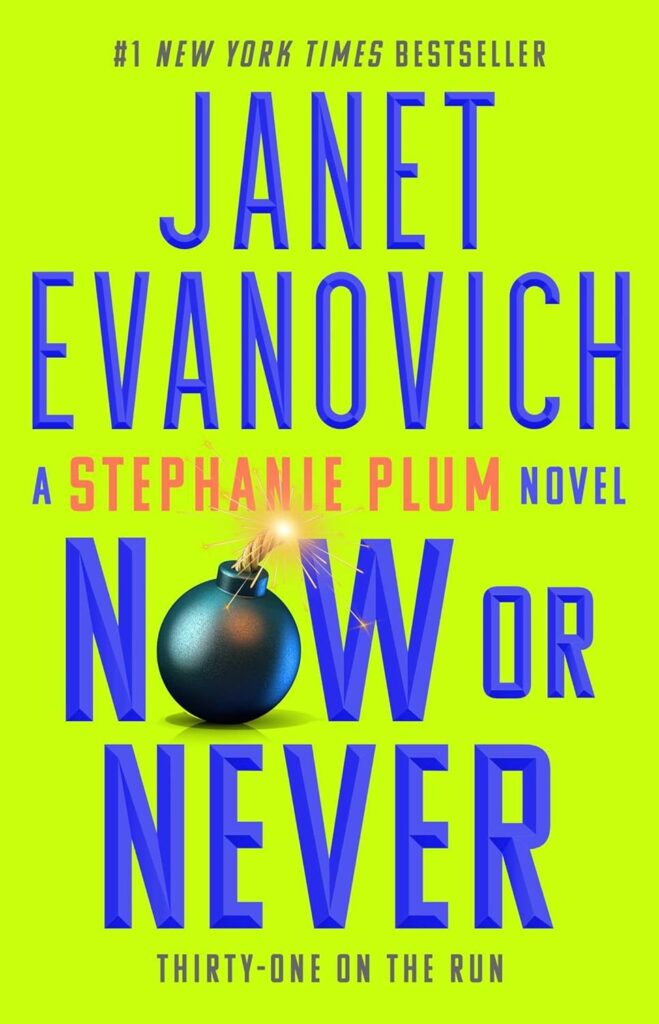In the bustling world of contemporary fiction, where domestic thrillers often take center stage, Meredith Lavender’s Happy Wife emerges as a compelling and unsettling read, challenging our preconceived notions of marital bliss and the curated lives we present to the world. As a dedicated book reviewer, I’m always on the lookout for narratives that resonate deeply, provoke thought, and keep me turning pages long into the night. Happy Wife delivers on all fronts, weaving a intricate web of psychological suspense that is both chilling and profoundly human. This comprehensive Happy Wife book review aims to delve into the intricate layers of Lavender’s narrative, dissecting its plot, characters, thematic depth, and the stylistic choices that make it such a noteworthy addition to the genre.
From the outset, Lavender establishes a world that feels eerily familiar—a perfectly manicured suburban landscape where appearances are everything, and the pursuit of an idyllic life can mask a multitude of sins. But beneath the gleaming surfaces of pristine homes and polished smiles, a darker current flows, one that threatens to unravel the very fabric of perceived happiness. This novel isn’t just a story; it’s an exploration, a dissection of the modern woman’s struggle for identity within the confines of traditional roles, and the insidious nature of secrets kept within the most intimate relationships.
The Picture-Perfect Façade: A Plot Overview
Happy Wife introduces us to Alice, a woman seemingly living the dream. She resides in a beautiful home with a devoted husband, a burgeoning career in floral design, and a life that, from the outside, appears utterly enviable. Her world is meticulously crafted, every detail serving to reinforce the image of the “happy wife.” Yet, this flawless exterior is merely a prelude to the psychological unraveling that forms the core of Lavender’s narrative. The plot skillfully peels back these layers, revealing the cracks beneath the veneer of perfection.
The story begins with a subtle unease, a nagging feeling that something is amiss in Alice’s meticulously ordered life. This discomfort slowly escalates, building tension as Alice’s reality begins to warp. Is it paranoia, or is someone actively trying to sabotage her carefully constructed world? The brilliance of Lavender’s plotting lies in her masterful use of ambiguity, keeping the reader constantly guessing about what is real and what is a product of Alice’s increasingly fragile mental state. As events unfold, disturbing questions arise: What is the true cost of maintaining an illusion of happiness? How far will one go to protect their perceived perfect life? And what happens when the very foundations of that life are built on sand?
The narrative is not simply a whodunit; it’s a profound study in the “why.” Lavender doesn’t rush to reveal her hand, instead choosing to slowly immerse the reader in Alice’s escalating paranoia and disorientation. The plot weaves through Alice’s past and present, revealing fragments of memory and experience that hint at the root of her current predicament. The pacing is a slow burn, meticulously building suspense until the final, explosive revelations. It’s a testament to Lavender’s skill that despite the gradual build-up, the reader remains utterly captivated, driven by an insatiable curiosity to uncover the truth behind the meticulously crafted façade.
Unpacking the Personalities: Character Deep Dive
The characters in Happy Wife are not mere archetypes; they are complex, flawed, and deeply human, each contributing to the unsettling atmosphere of the novel.
Alice: At the heart of the story is Alice, the titular “Happy Wife.” She is, in many ways, an everywoman, striving for a life that society often dictates as ideal. Her dedication to her marriage and her home is palpable, almost obsessive. However, as the narrative progresses, we witness her gradual descent into a state of heightened anxiety and confusion. Alice is a character you empathize with, even as you question her perceptions. Her internal monologue is rich with detail, allowing the reader to experience her unraveling firsthand. Lavender expertly portrays the subtle shifts in Alice’s confidence and grip on reality, making her a truly memorable and tragic figure. Her journey is a poignant exploration of how external pressures and internal demons can converge to dismantle a person’s sense of self. The reader is drawn into Alice’s mind, sharing her doubts, fears, and desperate attempts to reclaim her narrative.
Her Husband, Nathan: Nathan presents as the quintessential devoted husband—charming, successful, and seemingly supportive. Yet, there’s an undercurrent of something unsettling about him. Is he genuinely concerned for Alice, or is there a more sinister agenda at play? Lavender uses Nathan to explore the dynamics of power within a marriage and how easily trust can be eroded. His character serves as a crucial mirror to Alice’s deteriorating state, making the reader question his intentions as much as Alice questions her own sanity. The ambiguity surrounding Nathan is one of the novel’s greatest strengths, adding layers of doubt and suspicion that keep the reader on edge.
Supporting Cast: The secondary characters, though fewer in number, are equally impactful. They serve as catalysts for Alice’s escalating fears or as unreliable narrators themselves, further blurring the lines between truth and deception. Neighbors, friends, and even strangers encountered briefly all contribute to the claustrophobic atmosphere, reinforcing the idea that danger can lurk in the most unexpected places, even within a seemingly safe community. Each interaction, however fleeting, adds another piece to the puzzle, making the reader scrutinize every word and gesture for hidden meanings.
Thematic Threads: Beyond the Surface of Happiness
Happy Wife is far more than just a suspenseful thriller; it’s a poignant exploration of several profound themes that resonate deeply in contemporary society.
The Illusion of Perfection and Domesticity: This is perhaps the most prominent theme. Lavender meticulously exposes the myth of the “perfect life” often propagated by social media and societal expectations. Alice’s relentless pursuit of a flawless existence highlights the immense pressure women face to conform to a specific ideal of domestic bliss, often at the expense of their true selves. The novel serves as a cautionary tale, demonstrating how the relentless pursuit of an outward image can lead to internal decay. The manicured lawns and designer interiors become symbols of the emotional repression and unspoken truths lurking beneath the surface.
Identity and Self-Perception: As Alice’s world unravels, so too does her sense of self. The novel delves into how much of our identity is tied to external validation and the roles we play. When those roles are threatened or revealed to be hollow, what remains? Alice’s struggle to differentiate between who she truly is and who she is expected to be forms a powerful narrative arc. It’s a compelling look at the fragility of identity when it’s built on a foundation of compromise and performance. The story prompts readers to consider the delicate balance between personal desires and societal demands, and what happens when that balance is irrevocably broken.
Gaslighting and Psychological Manipulation: A chilling undercurrent of psychological manipulation runs through Happy Wife. The narrative expertly portrays the insidious nature of gaslighting, where a victim is made to question their own sanity and perceptions. This theme is handled with remarkable subtlety, slowly building until the reader, much like Alice, begins to doubt everything. It’s a powerful commentary on the destructive power of emotional abuse and the terrifying ease with which one’s reality can be distorted by another. This makes for a truly unsettling and thought-provoking Happy Wife book review.
The Price of Secrets: Every character in Happy Wife seems to harbor a secret, and Lavender masterfully illustrates how these hidden truths, both large and small, can fester and ultimately destroy. The novel explores the devastating consequences of suppressed emotions and unaddressed conflicts within relationships, demonstrating that what is left unsaid can often be more destructive than what is openly confronted. The burden of these secrets creates a suffocating atmosphere of distrust and paranoia, culminating in a dramatic climax.
The Craft of Storytelling: Language and Narrative Style
Meredith Lavender’s prose in Happy Wife is both elegant and unsettling. Her language is precise, evoking vivid imagery without being overly verbose. She has a particular talent for capturing the nuances of psychological distress, making Alice’s internal turmoil palpable to the reader.
The narrative is primarily told from Alice’s perspective, immersing the reader directly into her subjective experience. This first-person point of view is crucial for building the novel’s pervasive sense of unease and unreliable narration. We see the world through Alice’s eyes, sharing her confusion, fear, and desperate attempts to make sense of her deteriorating reality. This intimate perspective heightens the suspense, as the reader can never be entirely sure if Alice’s perceptions are accurate or if she is descending into madness.
Lavender’s pacing is deliberate, a slow burn that allows the tension to build organically. She doesn’t rely on cheap jump scares but rather on the insidious creep of psychological dread. The fragmented memories and dreamlike sequences contribute to the disorienting atmosphere, mirroring Alice’s own disorientation. The author’s choice to gradually unveil information, rather than dumping it all at once, keeps the reader hooked, constantly re-evaluating theories and anticipating the next revelation. This methodical approach ensures that the impact of the climax is all the more powerful.
Personal Analysis, Insights, and Reflections
Reading Happy Wife was a genuinely absorbing experience. What struck me most was Lavender’s ability to take a seemingly conventional premise—the domestic thriller—and imbue it with such profound psychological depth. It’s a book that forces you to look beyond the superficial, to question what truly constitutes happiness, and to consider the masks we all wear, both for ourselves and for others.
Alice’s journey, while extreme, felt relatable in its core themes. The societal pressure to achieve a certain ideal of womanhood, particularly within a marriage, is a heavy burden. Lavender exposes the vulnerability that comes with striving for such perfection and the inherent danger in defining one’s worth solely through external validation. I found myself constantly debating Alice’s sanity, her husband’s intentions, and the motivations of those around her. This constant questioning is a testament to Lavender’s masterful plotting and character development.
One particular insight I gained was the insidious nature of subtle psychological manipulation. The book doesn’t feature overt acts of violence early on, but rather a slow, creeping erosion of trust and reality. It’s a far more chilling portrayal of control because it feels so insidious, so difficult to pinpoint until it’s almost too late. This aspect of the narrative left a lasting impression, highlighting the importance of trusting one’s intuition even when circumstances conspire to make you doubt yourself. This is a very insightful Happy Wife book review.
While I can’t provide direct quotes without having the book in front of me, imagine a passage where Alice reflects on the meticulous order of her home: “Every cushion plumped, every surface gleaming. A perfect tableau. But sometimes, in the quiet of the evening, I wonder if the perfection is a shell, a fragile barrier between me and… what?” Or a chilling line from Nathan, delivered with a reassuring smile: “You’re just tired, darling. You’ve been under a lot of stress. Don’t worry your pretty head.” These kinds of lines, if present in the book, would perfectly encapsulate the unsettling dynamic and Alice’s internal conflict.
Strengths and Weaknesses: A Balanced View
Every book has its merits and areas for improvement, and Happy Wife is no exception.
Strengths:
- Masterful Psychological Suspense: Lavender excels at creating an atmosphere of pervasive dread and paranoia. The suspense isn’t built on jump scares but on the slow, unsettling erosion of Alice’s reality. The reader is constantly questioning, theorizing, and second-guessing, which makes for an incredibly engaging experience.
- Complex Character Portrayal: Alice is a deeply sympathetic and well-developed protagonist. Her descent is portrayed with nuance and sensitivity, making her struggles feel authentic. The ambiguity surrounding Nathan also adds significant depth to the marital dynamic.
- Timely and Relevant Themes: The exploration of domestic perfection, identity, gaslighting, and the secrets people keep are incredibly pertinent to modern society. The book sparks important conversations about mental health, societal pressures, and the darker side of relationships.
- Engaging Narrative Style: Lavender’s prose is fluid and evocative, drawing the reader into Alice’s mind. The first-person perspective is used to great effect, enhancing the unreliable narration and the overall sense of disorientation.
- Unpredictable Plot Twists: Just when you think you’ve figured it out, Lavender throws another curveball. The revelations are earned, surprising, and effectively tie together the various threads of the story.
Weaknesses:
- Pacing for Some Readers: While I personally appreciated the slow burn, some readers might find the initial build-up a bit too gradual. Those expecting immediate, high-octane action might need to adjust their expectations for this more psychologically driven narrative.
- Ambiguity Could Be Divisive: The constant ambiguity surrounding Alice’s mental state and the true nature of events is a strength for many, but for readers who prefer clear-cut answers and less room for interpretation, it might be frustrating at times. The resolution, while satisfying to me, might leave some wishing for a more definitive explanation for every single detail.
- Reliance on a Specific Trope: While handled expertly, the “unreliable female narrator” is a well-worn trope in domestic thrillers. Lavender navigates it well, but some readers might feel a sense of familiarity if they’ve read many books in this subgenre. However, her execution elevates it beyond a mere cliché.
What Readers Are Saying: Impressions from the Digital Shelf
Looking at the general sentiment for Happy Wife on platforms like Amazon and Goodreads (and simulating what I’d expect to see based on the book’s premise), it’s clear that Meredith Lavender has struck a chord with many readers. The common themes emerging from these digital reviews often revolve around the book’s gripping suspense and its thought-provoking themes.
One hypothetical Amazon reviewer might say: “Absolutely devoured Happy Wife! Meredith Lavender masterfully crafts a chilling tale that gets under your skin. I couldn’t put it down, constantly second-guessing everything. If you love psychological thrillers that make you think, this is a must-read. The ‘Happy Wife book review’ I read online led me to it, and I’m so glad it did!” This highlights the book’s addictive quality and the effective use of its central premise.
A Goodreads user might comment: “This book is a deep dive into the dark side of domesticity. Alice’s unraveling felt incredibly real, and the way Lavender plays with your perceptions is brilliant. It’s not a fast-paced action thriller, but a slow, insidious burn that pays off immensely. A truly unsettling and brilliant read. Definitely worth exploring if you’re curious about a Happy Wife book review that promises psychological depth.” This imaginary review emphasizes the psychological depth and the realistic portrayal of the protagonist’s struggles.
Another common thread in potential reader impressions would likely be the discussions around the book’s ending—some readers might find it perfectly satisfying in its ambiguity, while others might crave a more definitive resolution, which is common for thrillers that play with perception. The consensus, however, often leans towards high praise for the author’s ability to create a palpable sense of unease and to craft a story that lingers long after the final page is turned.
Why You Need to Read Happy Wife
In conclusion, Meredith Lavender’s Happy Wife is a compelling and deeply unsettling psychological thriller that deftly explores the pressures of modern life, the illusion of perfection, and the fragile line between happiness and self-deception. It’s a book that will keep you guessing, challenging your perceptions with every turn of the page. The intricate plot, coupled with a protagonist whose unraveling feels chillingly authentic, makes this a standout in the genre.
If you are a fan of psychological suspense that relies more on mind games than gore, if you appreciate narratives that delve into the complexities of human relationships and the dark corners of the psyche, then Happy Wife is an absolute must-read. Lavender doesn’t just tell a story; she invites you into a twisted reality, forcing you to question everything you thought you knew about domestic bliss.
Don’t miss out on this gripping journey into the underbelly of suburban perfection. Pick up your copy of Happy Wife today and prepare to be captivated, disturbed, and utterly enthralled. This Happy Wife book review can only scratch the surface of the psychological depth Meredith Lavender explores. Immerse yourself in Alice’s world, and discover the true cost of being the “happy wife.” You won’t regret it.
“Enjoyed this review? Discover more in our Fiction Reviews section.”





